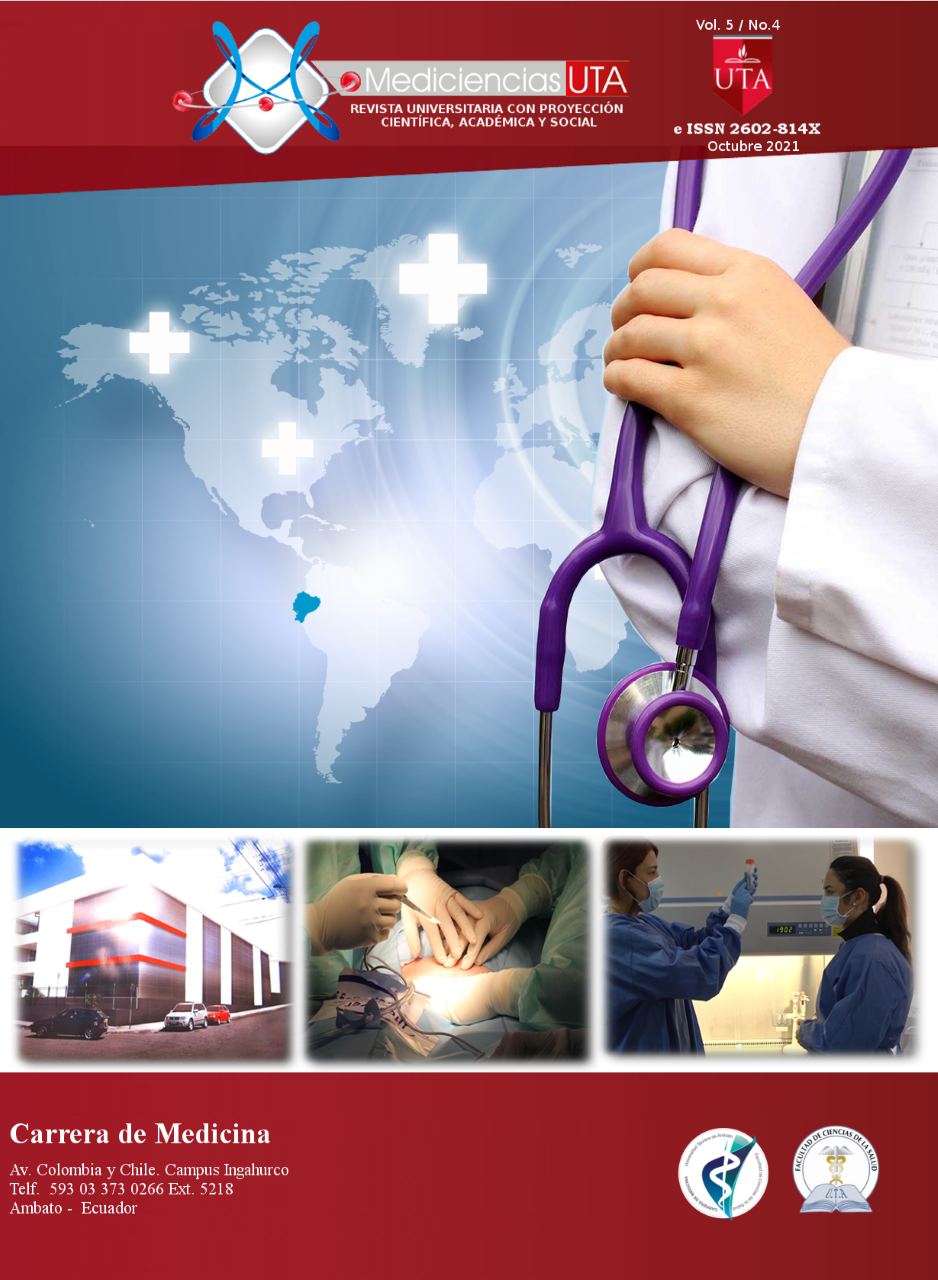Vivencias del cuidador informal del paciente con Covid-19 en la instancia domiciliaria en la parroquia de Quisapincha cantón Ambato
Contenido principal del artículo
Resumen
Introducción: El SARS-CoV-2 es un virus ARN perteneciente a la familia Coronaviridae que se relaciona con animales salvajes como el murciélago y reservorios intermediarios como el pangolín, serpientes y visones. Este virus produce la enfermedad COVID-19 la cual ha sido declarada como pandemia a nivel mundial y que ha requerido de cuidados tanto por parte del personal médico como por cuidadores informales.
Objetivo: Analizar las vivencias del cuidador informal del paciente con COVID-19 para determinar el nivel sobrecarga así como también las formas de afrontamiento hacia el problema de tal manera de implementar estrategias en el cuidado de pacientes por COVID-19 por parte del cuidador informal.
Material y métodos: Se realizó una investigación cualitativa, descriptiva, con diseño de campo, donde la población objeto de estudio fueron los familiares de pacientes con COVID-19 de la Parroquia de Quisapincha, los cuales habían cumplido la función de cuidador informal. La recolección de la información se realizó a través de entrevistas semiestructuradas realizadas a 10 participantes, considerándose los criterios de pertinencia relacionados con la calidad y suficiencia de la información, así como la saturación en los datos. El análisis de la información recopilada se efectuó siguiendo los lineamientos de la teoría fundamentada en los datos de donde emergieron categorías y subcategorías del discurso de los participantes del estudio. Así mismo, se cuidaron los principios éticos de autonomía, respeto y confidencialidad de la información.
Resultados: La sobrecarga de los cuidadores de pacientes con COVID-19 fue baja, debido a que ellos no se focalizaron en aspectos negativos del problema, más bien se basaron en el amor que le tienen a sus familiares utilizando diferentes estrategias de afrontamiento como la fe para que el estrés no afectara su calidad de vida.
Conclusiones: Se pudo evidenciar que los cuidadores no presentaron sobrecarga en la atención de sus familiares con COVID-19, al contrario, afloraron sentimientos como el afecto, la comunicación y la unión familiar.



